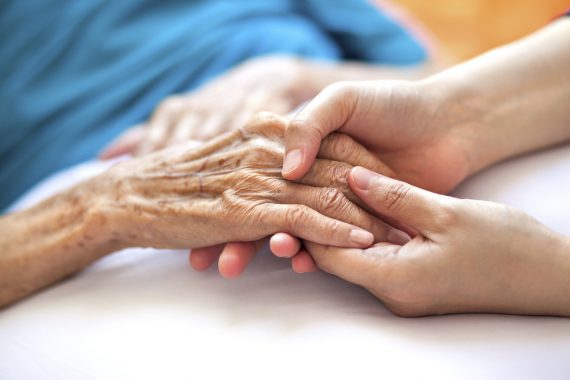At least 456 patients died after inappropriate opioid prescribing by GP

At least 456 patients died after being prescribed opioids without justification at a Gosport hospital in a ‘dangerous’ and ‘institutionalised regime’ of precribing, a review has concluded.
An inquiry into the deaths, conducted by former Bishop of Liverpool James Jones, concluded that an additional 200 patients with missing medical records may have also died due to overprescribed opioids.
Dr Jane Barton, a GP who worked at the hospital, was responsible for prescribing the painkillers for over 12 years and is so far the only person to face disciplinary action from the GMC over the deaths, although she was found fit to continue to practise.
But the report suggests this ‘outcome was at least in part due to the exclusive focus on one individual when there were significant systemic problem’ at the hospital.
The inquiry found: ‘In total, the panel found evidence of opioid usage without appropriate clinical indication in 456 patients – that is, in 40% of the records that contained sufficient information.
‘Taking into account the missing records, there were probably at least another 200 patients similarly affected but whose clinical notes were not found.’
Dr Barton was employed for five sessions a week in the department of medicine for elderly people at Gosport War Memorial Hospital between 1988 and 2000, where 92 patient deaths were initially investigated on multiple occations.
Bishop Jones said: ‘The documents seen by the Panel show that for a 12 year period a clinical assistant, Dr Barton was responsible for the practice of prescribing which prevailed on the wards. Although the consultants were not involved directly in treating patients on the wards, the medical records show that they were aware of how drugs were prescribed and administered but did not intervene to stop the practice.
‘Nurses had a responsibility to challenge prescribing where it was not in the interests of the patient. The records show that the nurses did not discharge that responsibility and continued to administer the drugs prescribed.
‘The documents also demonstrate the suboptimal care and lack of diligence by nursing staff in executing their professional accountability for the care delivered.’
A 2003 report by Prof Richard Baker, who worked on the Harold Shipman case, found evidence of ‘almost routine use of opiates’, which ‘almost certainly had shortened the lives of some patients’ at the hospital.
The latest review, which was commissioned by the Department of Health in 2014, interviewed over 100 families and combed over 800 death certificates, concluded that there was a ‘disregard for human life’.
Dr Barton has been the only doctor to face disciplinary action following the deaths of 12 patients under her care, when she was found guilty of ‘multiple instances of serious professional misconduct’ in 2010.
According to contemporaneous news reports from the BBC, the GMC added that she had prescribed ‘potentially hazardous’ levels of drugs to her patients.
However, she was not struck off the medical register and was instead allow to continue practising under certain restrictions, including not injecting opiates for three years. Dr Barton removed herself from the medical register the following year.
The deaths have been subject to several police investigations, including by the Crown Prosecution Service which concluded on three occasions ‘that the prosecution test was not satisfied and that there was insufficient evidence to sanction a criminal prosecution of healthcare staff, in particular Dr Barton’.
The report also found that an ‘awareness of the Shipman case’, who was convicted in 2000, ‘cast a shadow’ over the investigations into these deaths and ‘the outcome was at least in part due to the exclusive focus on one individual when there were significant systemic problems’.
It concluded: ‘The secretary of state for health and social care and the relevant public authorities will want to consider the action that now needs to be taken to further investigate what happened at the hospital.’
Summary of the panel’s findings
The report, which looked at the period between 1989 and 2000 at Gosport War Memorial Hospital, found that:
- There was a disregard for human life and a culture of shortening the lives of a large number of patients.
- There was an institutionalised regime of prescribing and administering ‘dangerous doses’ of a hazardous combination of medication not clinically indicated or justified, with patients and relatives powerless in their relationship with professional staff.
- When the relatives complained about the safety of patients and the appropriateness of their care, they were consistently let down by those in authority – both individuals and institutions.
- The senior management of the hospital, healthcare organisations, Hampshire Constabulary, local politicians, the coronial system, the Crown Prosecution Service, the General Medical Council (GMC) and the Nursing and Midwifery Council (NMC) all failed to act in ways that would have better protected patients and relatives, whose interests some subordinated to the reputation of the hospital and the professions involved.
Source: The Report of the Gosport Independent Panel
Pulse July survey
Take our July 2025 survey to potentially win £1.000 worth of tokens

Visit Pulse Reference for details on 140 symptoms, including easily searchable symptoms and categories, offering you a free platform to check symptoms and receive potential diagnoses during consultations.










